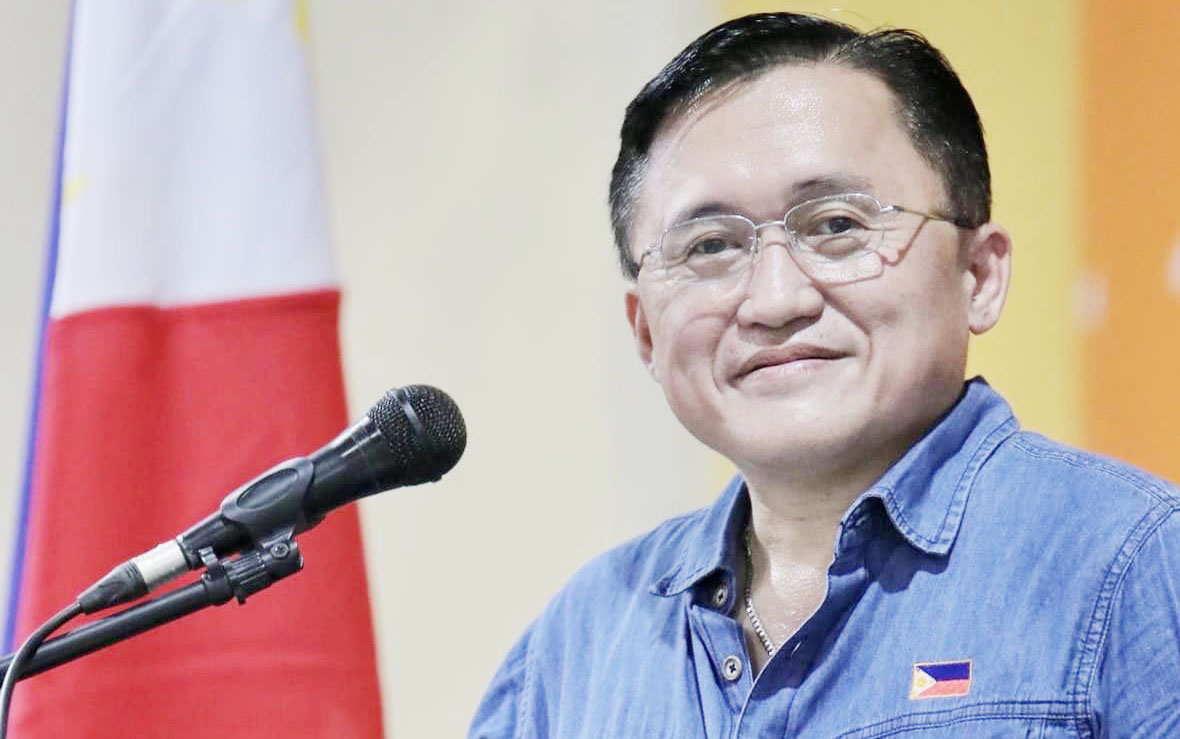AS the second State of the Nation Address of President Ferdinand Marcos, Jr., scheduled on July 24, looms, Senator Christopher “Bong” Go expressed his optimism regarding the administration’s capacity to uplift the lives of more impoverished members of the Filipino society and roll out further pro-poor initiatives.
With the current government’s focus on the nation’s economic recovery, the senator affirms the crucial need to ensure that no Filipino is left behind in the process.
“Unang-una, siyempre po kailangan po na walang maiwan na Pilipino sa ating economic recovery,” Go said in an interview on Monday, July 10, after providing aid to fire victims in Quezon City.
“Dapat po, nais ko pong marinig sa Pangulo ang kanyang additional na plano kung ano pa ‘yung pwedeng gawin upang mas lalong maisakatuparan ang ating inclusive and full economic recovery mula po sa pandemya,” he added.
Go, known for his active role in providing assistance to the less fortunate Filipinos, emphasized the need for government programs that target the struggling sectors of society.
“Dapat walang maiwan na mahihirap nating kababayan. Unahin po ang mga programa na nakatutulong po sa mga kababayan natin,’ he stressed.
As the country continues to grapple with the impact of the global pandemic, Go said that the issue of food security, a chronic concern in many Filipino households, stands at the forefront of the discussion.
“Dapat po, walang magutom. Importante po dito tiyan ng bawat Pilipino. Importante po dito trabaho ng bawat Pilipino,” the senator underlined.
Go also talked about his support for the administration’s Philippine Development Plan, an eight-point agenda that seeks to achieve food security, improve supply chain management, decrease energy costs and preserve energy security, and reduce economic vulnerability triggered by the pandemic.
The agenda also aims to address healthcare issues, strengthen social protection, promote infrastructure development, and encourage entrepreneurship, especially among the micro, small, and medium enterprises.
“The more we should invest sa ating healthcare system sa ngayon,” Go remarked.
“Infrastructure development, trabaho po ‘yan at creating a green economy, strengthening market competition and promoting entrepreneurship, negosyo po lalong-lalo na ang mga MSMEs, ‘yung maliliit nating negosyante,” he added.
Additionally, the senator emphasized the critical role of the MSMEs in the country’s economic recovery. These small-scale businesses have been heavily affected by the pandemic, prompting the need for dedicated programs to support their recovery.
“So uulitin ko dapat po walang magutom. Tulungan po natin ang mahihirap nating kababayan, ang mga malilit na negosyante, sila po ang dapat nating unahin,” he urged.
One such initiative that Go mentioned is Senate Bill No. 1594, or the One Town One Product (OTOP) bill, that has recently been passed in the Senate. The measure, which was authored and co-sponsored by Go, aims to institutionalize the OTOP. It shall serve as a government stimulus program to encourage the growth of MSMEs in the country through the utilization of indigenous raw materials, local traditions, and cultures across the country.
“Kaya nga po mayroon tayong bill na One Town One Product Bill sa Senado. Pasado na po ito sa Senado na tulungan po ‘yung mga MSMEs nating mga kababayan,” he said.
To end, Go expressed his unwavering support for Marcos, as long as the initiatives are beneficial to the underprivileged Filipinos.
“Suportado ko po ang ating Pangulo basta makakatulong po sa mahihirap nating kababayan,” concluded Go.
In line with efforts to promote economic development in the country, Go likewise reintroduced SBN 1182 or the proposed Government Financial Institutions Unified Initiatives to Distressed Enterprises for Economic Recovery (GUIDE) Act in a bid to strengthen the capacity of government financial institutions to provide the needed financial assistance to MSMEs, and other strategically important companies (SICs).
The GUIDE aims to strengthen the capacity of the Land Bank of the Philippines and the Development Bank of the Philippines in providing much-needed access to credit and financial assistance to distressed businesses, including MSMEs, SICs and other businesses affected by the pandemic.
At the height of the pandemic, Go was likewise instrumental in the implementation of the Small Business Wage Subsidy program, which provided eligible workers who were unable to work or get paid during the enhanced community quarantine period with two tranches of financial assistance.

